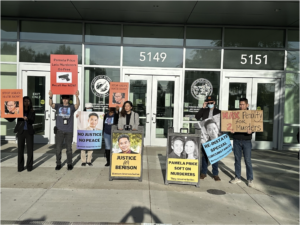
This week’s question comes John K from South City who asks: “I recently bought my first home with my wife. We saw the ad for the house on line and went to an open house. We liked the house and asked the broker about the neighborhood because we wanted a safe, quiet, place to raise a family.
The broker said that it was a quiet neighborhood with older, retired neighbors. The agent acted as a “dual agent” which he said meant he could represent us both. We went through a lot of paperwork, got the loan, and then closed on the house.
After we moved in we started seeing a lot of traffic coming and going from next door. It turns out that they are selling drugs and may be running a meth lab. I spoke to the other neighbor next door and he said that this had been going on a long time and he had spoken with the broker about it. I feel ripped off, what can I do?”
John, this is a tragedy. You work your whole life, save your money, and try to make a home for your family and get lied to.
You probably won’t be surprised to learn that this isn’t the first time this has happened. The law in the area of disclosures is fairly well developed. The relationship between a real estate agent and their client is one which involves great trust: indeed, a home purchase is the largest financial transaction in most people’s lives.
It is referred to as a fiduciary relationship, one in which special duties are created. The realtor is referred to as the fiduciary and you are his/her principal.
Given the fact that the broker represented both of you in the transaction, he owed each of you a fiduciary duty to disclose to you, his principals, all ‘material facts‑‑that is, all facts which might affect the principal’s willingness to enter into or complete a transaction.
Material facts are those which a fiduciary knows are important to the principal and which might affect their decision making process. In your case, you had made it clear that you wanted a safe and quiet place to live.
These were facts of material importance to you in making your decision. Your agent owed you a duty to disclose material facts which were known to him and to disclose reasonably obtainable material information, which would require the agent to investigate facts not known to the agent.
In this case it appears that the agent didn’t need to investigate anything: he knew the facts. He had an obligation to disclose them to you. His failure to disclose material facts which he knew or should have known would have affected your decision making is often referred to as constructive fraud.
If you can prove that he knew this and withheld it from you, you may be able to sue him for fraud and concealment and seek to recover damages for the harms you have suffered as set forth below.
In addition to the broker owing you an obligation to disclose material information, the seller had a statutory obligation to truthfully complete a transfer disclosure statement.
California Civil Code Section 1102.6 sets forth the statutory disclosures which you were entitled to receive from the seller. Look at Section II (C)(11): it requires the seller to answer the following question yes or no – are you aware of “neighborhood noise or nuisance problems?”
The owner can’t get out of the responsibility to disclose based on the fact that the question didn’t specifically ask about drugs. Section 1102.8 states that “the specification of items for disclosure in this article does not limit or abridge any obligation for disclosure created by any other provision of law or which may exist in order to avoid fraud, misrepresentation, or deceit in the transfer transaction.”
If the seller knew, the seller had to disclose this information to you. Civil Code Section 1102.13 sets forth the damages which you may be allowed to recover it says: “no transfer subject to this article shall be invalidated solely because of the failure of any person to comply with any provision of this article. However, any person who willfully or negligently violates or fails to perform any duty prescribed by any provision of this article shall be liable in the amount of actual damages suffered by a transferee.”
Civil Code Section 3343 sets forth the kinds of damages which you may be entitled to: the difference between the actual value of that which you paid and the actual value of which you received together with any additional damage arising from the particular transaction, including your loss of use and enjoyment of the property to the extent that it was caused by the fraud.










